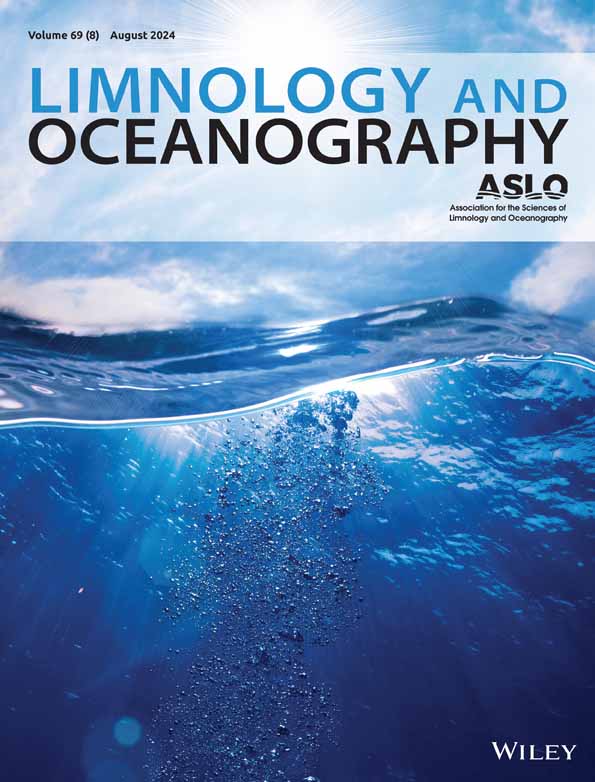对“水生真菌和卵菌在高分子有机物降解和转化中的对比作用”的修正
IF 3.7
1区 地球科学
Q1 LIMNOLOGY
引用次数: 0
摘要
本文章由计算机程序翻译,如有差异,请以英文原文为准。
Correction to “The contrasting roles of aquatic fungi and oomycetes in the degradation and transformation of polymeric organic matter”
求助全文
通过发布文献求助,成功后即可免费获取论文全文。
去求助
来源期刊

Limnology and Oceanography
地学-海洋学
CiteScore
8.80
自引率
6.70%
发文量
254
审稿时长
3 months
期刊介绍:
Limnology and Oceanography (L&O; print ISSN 0024-3590, online ISSN 1939-5590) publishes original articles, including scholarly reviews, about all aspects of limnology and oceanography. The journal''s unifying theme is the understanding of aquatic systems. Submissions are judged on the originality of their data, interpretations, and ideas, and on the degree to which they can be generalized beyond the particular aquatic system examined. Laboratory and modeling studies must demonstrate relevance to field environments; typically this means that they are bolstered by substantial "real-world" data. Few purely theoretical or purely empirical papers are accepted for review.
 求助内容:
求助内容: 应助结果提醒方式:
应助结果提醒方式:


